- Home
- S. Baring-Gould
The Book of Were-Wolves Page 17
The Book of Were-Wolves Read online
Page 17
1. Esuriem Hunger.
2. Rabiem Savageness.
3. Senectutem Old age.
4. Experientiam Experience.
5. Insaniem Madness.
6. Diabolum The Devil.
7. Deum God.
The first happens through hunger; when the wolves find nothing to eat in the woods, they must come to people and eat men when hunger drives them to it. You see well, when it is very cold, that the stags come in search of food up to the villages, and the birds actually into the dining-room in search of victuals.
"Under the second head, wolves eat children through their innate savageness, because they are savage, and that is (propter locum coitum ferum). Their savageness arises first from their condition. Wolves which live in cold places are smaller on that account, and more savage than other wolves. Secondly, their savageness depends on the season; they are more savage about Candlemas than at any other time of the year, and men must be more on their guard against them then than at other times. It is a proverb, 'He who seeks a wolf at Candlemas, a peasant on Shrove Tuesday, and a parson in Lent, is a man of pluck.' . . . Thirdly, their savageness depends on their having young. When the wolves have young, they are more savage than when they have not. You see it so in all beasts. A wild duck, when it has young poults, you see what an uproar it makes. A cat fights for its young kittens; the wolves do ditto.
"Under the third head, the wolves do injury on account of their age. When a wolf is old, it is weak and feeble in its leas, so it can't ran fast enough to catch stags, and therefore it rends a man, whom it can catch easier than a wild animal. It also tears children and men easier than wild animals, because of its teeth, for its teeth break off when it is very old; you see it well in old women: how the last teeth wobble, and they have scarcely a tooth left in their heads, and they open their mouths for men to feed them with mash and stewed substances.
"Under the fourth head, the injury the were-wolves do arises from experience. It is said that human flesh is far sweeter than other flesh; so when a wolf has once tasted human flesh, he desires to taste it again. So he acts like old topers, who, when they know the best wine, will not be put off with inferior quality.
"Under the fifth head, the injury arises from ignorance. A dog when it is mad is also inconsiderate, and it bites any man; it does not recognize its own lord: and what is a wolf but a wild dog which is mad and inconsiderate, so that it regards no man.
"Under the sixth head, the injury comes of the Devil, who transforms himself, and takes on him the form of a wolf So writes Vincentius in his Speculum Historiale. And he has taken it from Valerius Maximus in the Punic war. When the Romans fought against the men of Africa, when the captain lay asleep, there came a wolf and drew his sword, and carried it off. That was the Devil in a, wolf's form. The like writes William of Paris,--that a wolf will kill and devour children, and do the greatest mischief. There was a man who had the phantasy that he himself was a wolf. And afterwards he was found lying in the wood, and he was dead out of sheer hunger.
"Under the seventh head, the injury comes of God's ordinance. For God will sometimes punish certain lands and villages with wolves. So we read of Elisha,--that when Elisha wanted to go up a mountain out of Jericho, some naughty boys made a mock of him and said, 'O bald head, step up! O glossy pate, step up!' What happened? He cursed them. Then came two bears out of the desert and tore about forty-two of the children. That was God's ordinance. The like we read of a prophet who would set at naught the commands he had received of God, for he was persuaded to eat bread at the house of another. As he went home he rode upon his ass. Then came a lion which slew him and left the ass alone. That was God's ordinance. Therefore must man turn to God when He brings wild beasts to do him a mischief: which same brutes may He not bring now or evermore. Amen."
It will be seen from this extraordinary sermon that Dr. Johann Geiler von Keysersperg did not regard werewolves in any other light than natural wolves filled with a lust for human flesh; and he puts aside altogether the view that they are men in a state of metamorphosis. However, he alludes to this superstition in his sermon on wild-men of the woods, but translates his lycanthropists to Spain.
THE END.

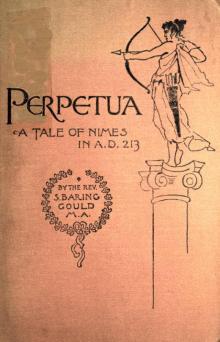 Perpetua. A Tale of Nimes in A.D. 213
Perpetua. A Tale of Nimes in A.D. 213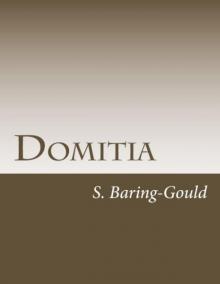 Domitia
Domitia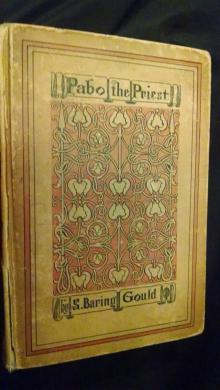 Pabo, the Priest: A Novel
Pabo, the Priest: A Novel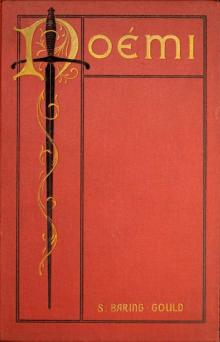 Noémi
Noémi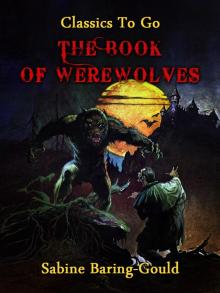 The Book of Were-Wolves
The Book of Were-Wolves